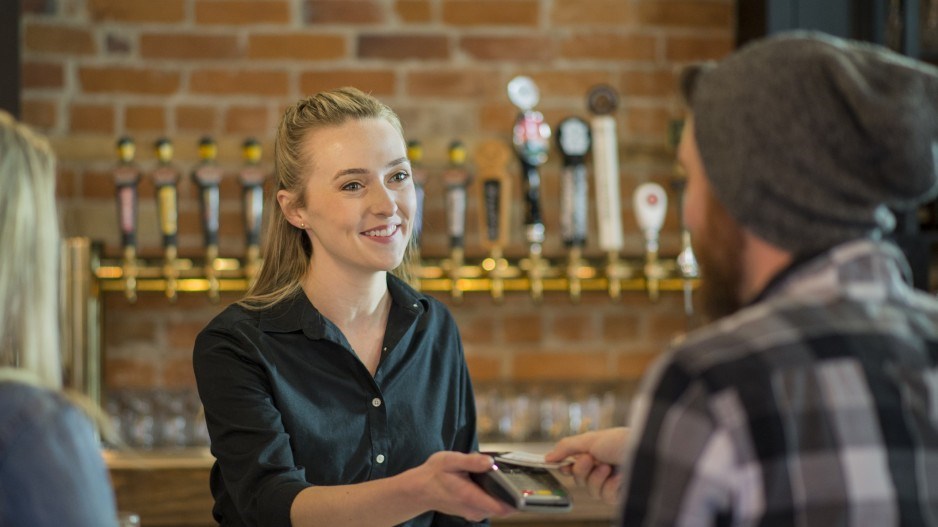It's unclear exactly how much British Columbians tip in one year, but some assumptions can be made to draw an estimate.
Assuming alcohol sales accounted for the industry goal of 30 per cent of full-service restaurant bills, which account for half of all receipts, there would be about $2.6 billion in alcohol sales, which are taxed at 15 per cent. The $14 billion worth of food service tabs would have about $960 million in tax added to the subtotal.
So, if British Columbians tipped 15 per cent, on average, across all establishments, it would amount to about $2.3 billion in tips. This also assumes everyone is tipping on taxes, which is the norm. As such, British Columbians may be dishing out as much as $144 million this year for tips on taxes.
"That is sort of an issue with the payment terminals — calculating the total cost, not the pre-tax cost, I suspect," says David Tikkanen, head of the tourism marketing program at BCIT.
Granted, most people would consider that a tip should only apply to service, but it raises the question of how difficult it would be to present customers with tipping options based on the subtotal.
It's a bit of the "wild, wild West," says Tim Silk, associate professor of teaching, marketing and behavioural science division at the Sauder School of Business.
"There's a lot less transparency nowadays," says Silk.
Using a food truck, for example, "they got it set up that I can choose 15, 18 or 20 per cent. And maybe I only want to do 10. But I don't know in that situation, is it 10 per cent of pre-tax or post-tax?" says Silk.
Possibly adding to the totals will be the introduction of credit card surcharges on the total bill, at the discretion of food service providers. This stems from Visa and Mastercard revising acceptance rules for merchants choosing to do so after they previously prohibited it.
This roughly 1.5 per cent surcharge, if added to the final bill, will likely cost British Columbians $2.25 million in additional tips for every billion dollars paid by credit card.
That is if the customer bases their tip on the subtotal.
Industry experts such as Tikkanen and Silk say people generally won't pay much attention to the taxes and fees when tipping. Between the servers, managers, payment processors and banks, there's little interest in making the service subtotals more transparent.
"This is probably a technology limit. It's probably not something that the bank cares very much about. They're probably not super motivated to go and spend a bunch of money to make the software to do that," says Tikkanen.
Moneris, the largest payment processor, which takes 0.4 per cent of all transactions, explained to Glacier Media that it's either impossible or impractical to have the payment terminals show the subtotals on tips. It's impossible if the restaurant computers don't communicate with the terminal. And if they do, the next issue arises by calculating different taxes across jurisdictions and even on other products, such as alcohol.
‘Where do your tips go?’
While there are always anecdotal concerns about whether your entire tip is received and kept by service staff, B.C. has laws to ensure this is so.
The Employment Standards Act defines gratuities as any voluntary payments a reasonable person would infer go to an employee. The money cannot be kept by employers (managers and owners), unless the employer “substantially” conducts the same work. Employers can require employees to pool their tips, and to share them with those employees who work in positions that otherwise have no access to tips.
And there are no reasons for an employer to garnish tips, including business costs.
This means employers also eat the fees associated with higher bills due to tipping. For example, on a $100 bill that includes $10 of tips, the employer will be charged about two per cent in processing fees. And so the employer would have to pay $0.20 from that bill, as all $10 must go to the employees.




